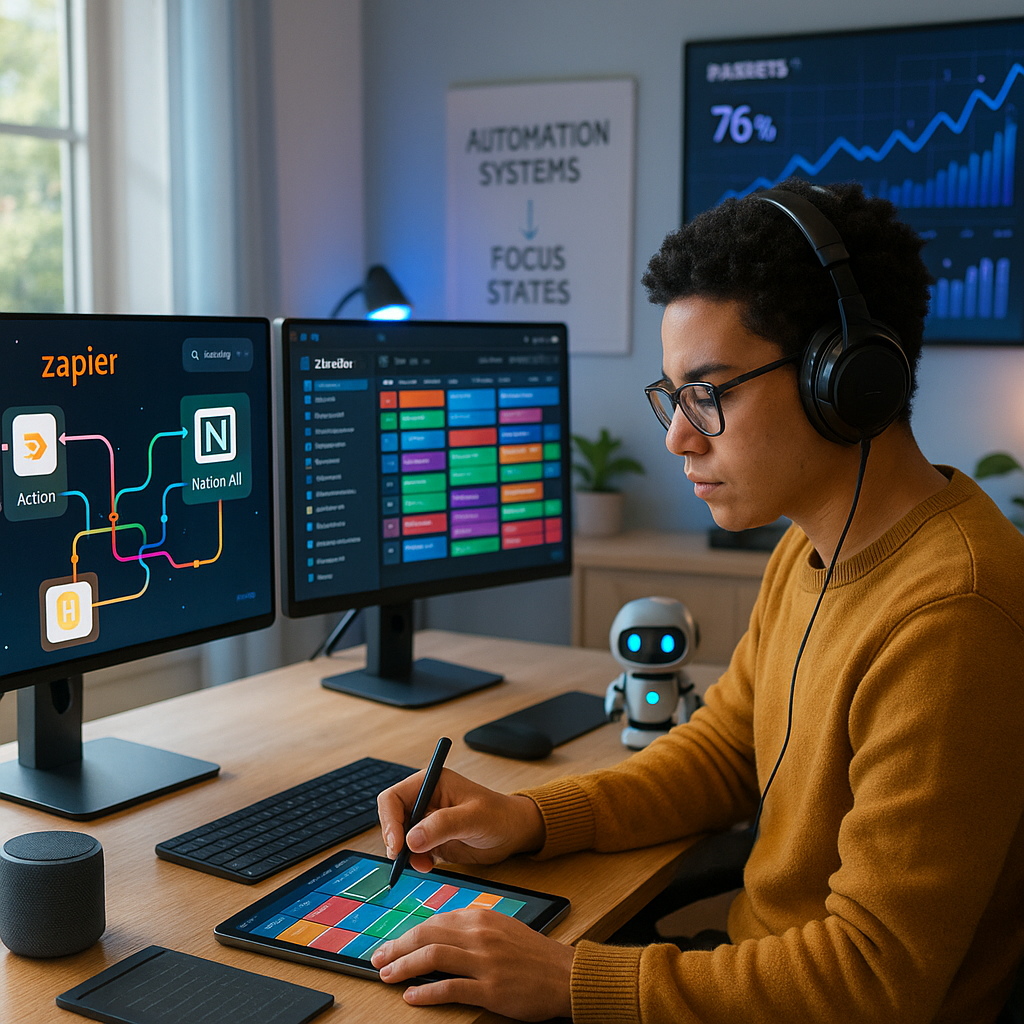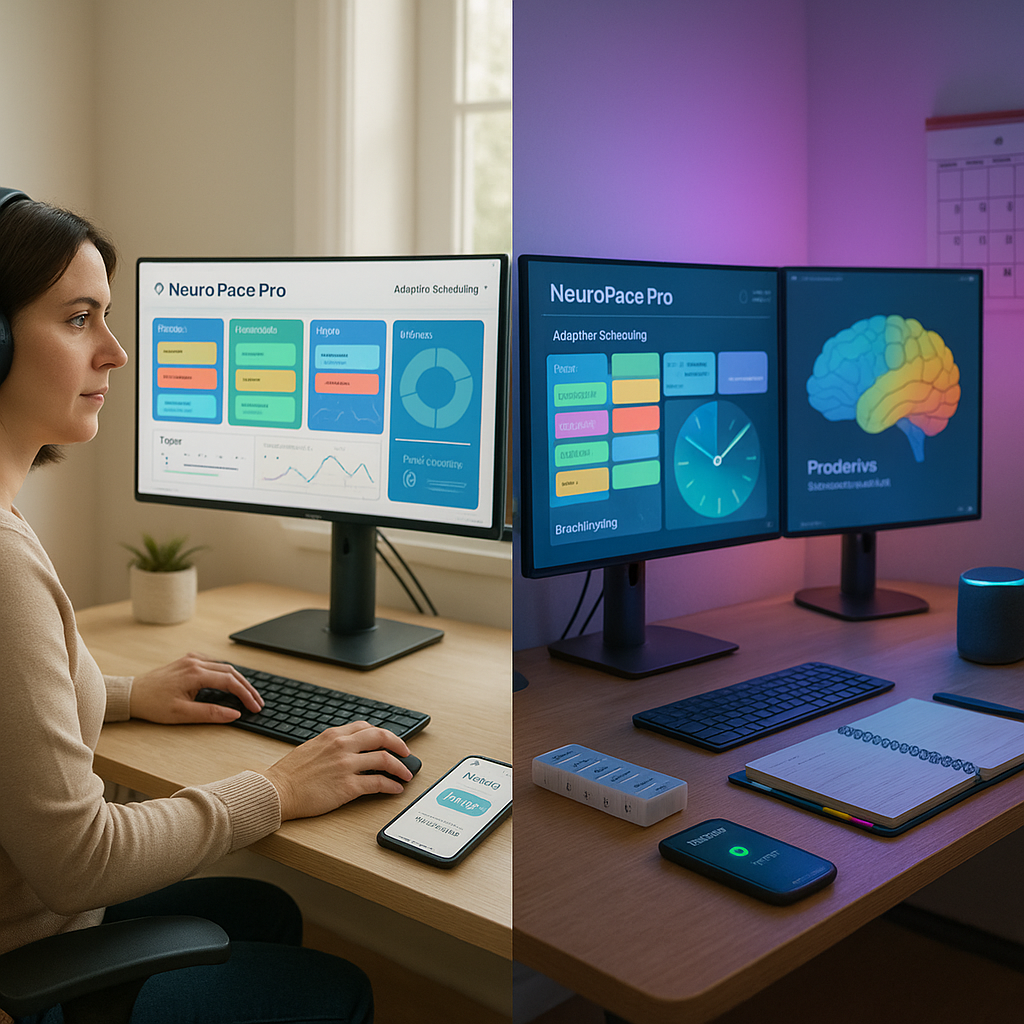Key Takeaways
- AI-driven workflows unlock productivity: Neurodivergent leaders report that automation helps reduce overwhelm and keep projects on track, even during low-energy periods.
- Tailored systems reduce burnout: Custom routines and digital assistants enable founders to navigate cycles of hyperfocus without crashing, easing the mental load.
- Strengths reframed as assets: Tools like chatbots and automated reminders help channel ADHD and AuADHD traits such as deep learning and fast pattern recognition into business advantages.
- Acceptance fuels innovation: By embracing, not resisting, their neurodivergence, founders can build scalable, efficient companies designed for their unique minds.
- Community and consulting spur growth: ADHDink’s resources demonstrate how practical AI integration empowers people to design sustainable, scalable work lives.
Introduction
Neurodivergent founders are transforming their businesses by adopting AI assistants and tailored automation tools. This shift, inspired by ADHDink’s lived experience, helps ADHD and autistic professionals work with their unique wiring. By building systems that enhance focus and unlock productivity, these founders are scaling their companies sustainably on their own terms.
Turning Challenges into Competitive Advantages
Neurodivergent founders are using automation tools to turn cognitive differences into business strengths. For example, Sarah Chen, founder of tech startup NeuroPace, automated 80% of her company’s operations after noticing how her ADHD traits influenced her workflow.
Chen stated that her tendency to hyperfocus on creative tasks while struggling with routine work was not a weakness but a guide for what to automate. She now relies on AI-powered systems for meeting scheduling and email management. This frees her mind for strategic priorities.
This approach is becoming more common among neurodivergent entrepreneurs. A survey by NeuroTech Solutions found that 73% of neurodivergent founders who used automation tools reported significant improvements in productivity and stress management.
Strategic Automation Solutions
Neurodivergent business leaders are focusing on automating tasks prone to causing cognitive friction. Task-switching and administrative work, which are often challenging for ADHD and autistic individuals, are among the most frequently automated processes.
For instance, Marcus Rodriguez, CEO of DataFlow Industries, developed a custom system of automated workflows to support context-switching. Rodriguez explained that he created digital bridges between tasks that used to scatter his attention, so his systems now automatically prepare everything needed for upcoming activities.
These founders tend to automate more comprehensively than their neurotypical peers. Their systems extend beyond basic scheduling; they address executive function challenges and fluctuations in energy.
Tools and Systems That Work
Popular automation tools among neurodivergent founders include:
- Zapier for creating custom workflows between applications
- Motion for AI-powered schedule management
- Notion AI for content organization and generation
- TextExpander for communication templating
Dr. Jamie Morris, a neurodiversity consultant, notes that these tools act as cognitive support systems when implemented thoughtfully and can serve as an external executive function system.
Tech founder Alex Winters structured his company’s workflow around his ADHD traits. Winters said he automated energy-draining tasks and created pathways for productive flow states. His system sorts incoming work by energy requirements and optimal focus times.
Measuring Impact and Outcomes
Automation is yielding tangible results for neurodivergent founders. Chen reported a 40% decrease in administrative hours and a 60% reduction in task-switching stress after introducing automated systems.
The benefits go beyond personal productivity. Rodriguez’s company experienced a 35% increase in project completion rates by adopting tools that support diverse thinking styles within his team.
According to NeuroTech Solutions, neurodivergent founders using comprehensive automation saw growth rates 2.5 times higher than those relying on minimal automation.
Building Sustainable Systems
Effective automation requires attention to individual needs and work styles. Morris recommends starting small and building systems gradually to avoid overwhelming change.
Many founders find regular system audits helpful. Winters explained that he reviews his automation setup monthly, adjusting as business needs or personal demands shift.
The focus is on creating flexible systems that adapt over time while maintaining steady support for core neurodivergent traits. This helps prevent burnout and supports sustainable business growth.
Conclusion
Automation has become a practical tool for neurodivergent founders to leverage their strengths and minimize burnout, leading to measurable gains in productivity and growth. As personalized systems continue to evolve, founders are prioritizing regular audits and refinements to ensure lasting support. What to watch: founders will continue to assess and adapt their automation strategies to align with changing business and personal needs.





Leave a Reply